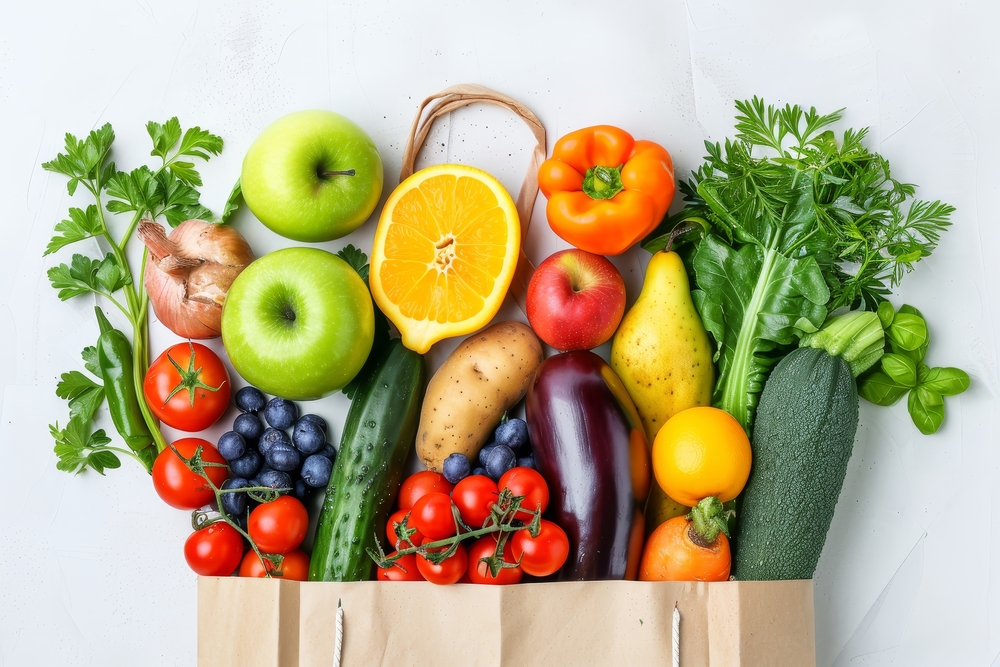Apeel’s organic produce coatings may seem harmless, but hidden synthetic ingredients and transparency issues raise serious concerns about the erosion of true organic standards.
Listen to the audio version of this article:
THE TOPLINE
- Apeel Sciences, a company partnered with the Gates Foundation, produces coatings like Organipeel for fruits and vegetables to reduce spoilage.
- The lack of clear labeling of products that are covered with these products prevents consumers from knowing exactly what is on their food, particularly for those concerned with potential allergens or synthetic substances.
- The use of substances like glycerides, permitted under loopholes, is part of a broader trend of Big Food weakening organic regulations. This threatens the integrity of the organic label, which was originally meant to ensure transparency and natural, non-chemical farming and food production methods.
When you see the word “organic” on your food, you might expect your food to be grown in harmony with nature, free of synthetic chemicals, additives, and unnecessary processing. Right? Well, no longer. The rise of corporate interests in the organic food industry threatens to dilute the very essence of organic standards. Big Food is increasingly finding ways to capitalize on the organic label without adhering to the principles that make organic agriculture a healthier, more sustainable option. One such example is the use of products like Apeel’s Organipeel, which raises serious questions about transparency and the integrity of organic labeling.
What is Apeel and its Organipeel Product?
Apeel Sciences is a company that’s partnered with the Gates Foundation that produces coatings, like Organipeel and Edipeel, which are applied to fruits and vegetables to slow down spoilage. These coatings are derived primarily from plant oils. While the goal—reducing food waste—may seem commendable, the methods and ingredients used raise significant concerns, particularly when it comes to organic produce. It also begs other questions: how far should we go to extend the lifespan of vegetables and fruits? Should we be trying to cheat Nature’s sell by dates?
Organipeel, intended for use on organic produce, is registered with the EPA under the Federal Insecticide, Fungicide and Rodenticide Act as a pesticide, with citric acid listed as its active ingredient. The so-called “inert” ingredients include sodium bicarbonate (baking soda) and mono- and diglycerides. It’s the latter that should raise red flags for consumers, especially those trying to adhere to a truly organic diet.
The Hidden Ingredients in Apeel’s Coatings
The majority of Organipeel’s ingredients are monoglycerides and diglycerides—fatty acids commonly found in ultra-processed foods like candy, ice cream, and gum. While these substances are not unusual in processed foods, they are certainly not something you expect to find on fresh fruits and vegetables, especially those labeled as organic.
The fatty acids used in these coatings are extracted from grapeseed oil through a process that, according to their own documents, involves catalysts and solvents. Note that the grapeseed oil used by Apeel has already gone through an extraction process, using a procedure involving high temperatures and chemicals. Although the company claims that solvents are no longer used in their current manufacturing process, there is still no requirement for this level of transparency on the label of the food you’re buying.
Organic Loopholes

The glycerides that make up the bulk of Apeel’s product are on a list of synthetic substances allowed in organic production, but only for the purpose of “drum drying of foods”—not as a coating. A simple reading of this regulation suggests that Organipeel should not be allowed for this use on organic produce at all. But nonetheless, this highlights a longstanding trend we’ve been highlighting almost since the inception of the USDA’s organic program: the undermining of real organic standards by Big Food.
Consider the following:
- Hydroponically grown (soil-less) food is now allowed to be labeled organic, even though enhancing soil biological activity is a hallmark of organic agriculture.
- Half of all organic eggs and organic milk come from factory farms that make a mockery of real, regenerative organic practices.
- Organic poultry standards allow factory farms to slap the organic label on their products, deceiving consumers who are trying to make informed decisions.
Transparency: What You Don’t Know Can Hurt You
The lack of labeling for edible coatings is another major concern. Consumers have the right to know exactly what they’re feeding their families, especially when it comes to potential allergens or hidden synthetic ingredients. While Apeel claims that its coatings are free of all major allergens, the proprietary nature of their formulation makes it impossible to verify the safety of these coatings for sensitive individuals.
The presence of hidden ingredients in so-called organic products threatens the integrity of the entire organic movement, which was built on transparency and the rejection of unnecessary chemicals. Consumers deserve better.
The Bigger Picture: The Erosion of Organic Standards
Apeel’s Organipeel is just one example of how Big Food and corporate interests are finding ways to sidestep organic principles while still profiting from the organic label. By allowing non-organic substances like mono- and diglycerides on organic produce, we risk watering down the meaning of organic to the point that it no longer reflects a cleaner, healthier alternative.
We must protect the organic movement from becoming yet another marketing term co-opted by corporate interests. True organic integrity means adhering to farming and food production practices that nourish both people and the planet—not hiding behind coatings and synthetic chemicals.
The time has come for all of us to push back against the industrialization of organic foods and reclaim the purity and transparency that made organic such a desirable option in the first place. Consumers deserve nothing less.




Are there petitions/lawsuits any kind of formal push-back I and others can participate in?
I live in Washington state, where apples and fruits are grown for world consumption. . I am concerned enough to ask my local food co op to NOT sell anything with Organipeel on it. The produce manager said he was all for it.! I’ve appealed to the board with a letter. That said: how would the produce managers/buyers know if there are no labels? Ive seen the aPeel label on avcoados and non organic fruti at the supermarket: btu they are subtle too.
for now, I only trust hyper-local grown fruits. I know the farmers and farms. Yet most people do not have access to this “safety measure” to truly organic produce and food. What can we do now?
It won’t protect organic integrity, IMHO. There are many stores that won’t sell produce with Apeel and I won’t buy any produce with it on there.
YUK! Toxic and no way!
IF YOU HAVE A PETITION TO SIGN PLEASE SEND ME A LINK.
IF BILL GATES IS INVOLVED YOU KNOW IT IS BAD…MR DEPOPULATION GMO PUSHER AND VAX PUSHER HIMSELF. WE MUST MAINTAIN HIGH STANDARDS FOR ORGANIC FOOD.
So what can we do to “push back?” Most people don’t have time to get actively involved in issues like this. Do we petition the USDA? Will they pay any attention?
This is alarming and extremely disappointing. We need to correct this practice ASAP.
I now know why I had a reaction to eating apples. I have narrowed my allergy down to hexane. They must use an oil that uses hexane in the extraction process. I had not even thought oil would be on a natural product. Wow. There is less and less available for me to eat.😢😩